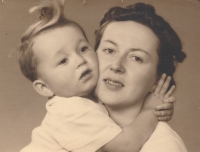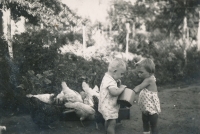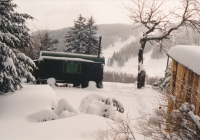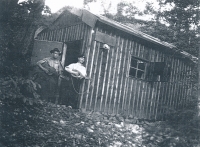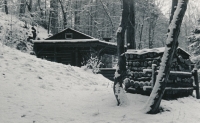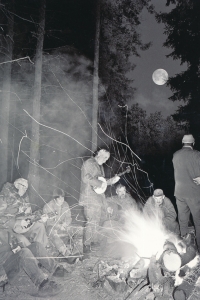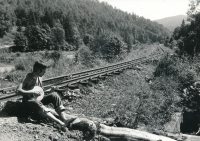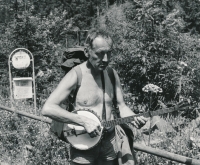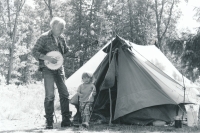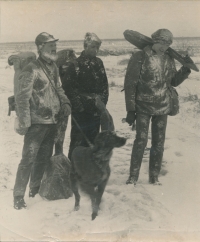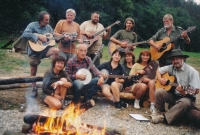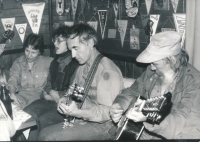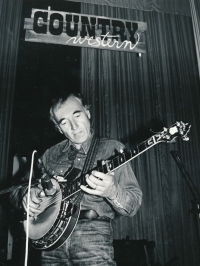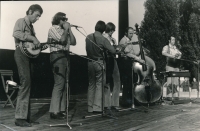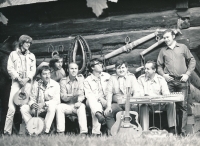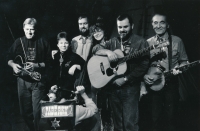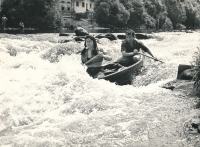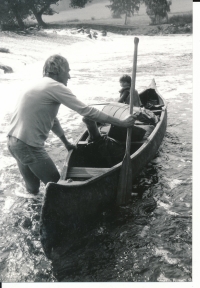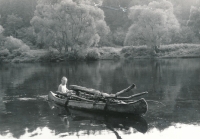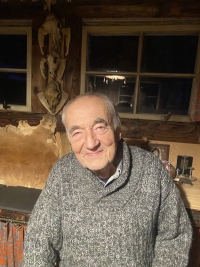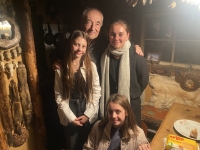Men from the State Security sang to Marko Čermák the hits of his band Greenhorns
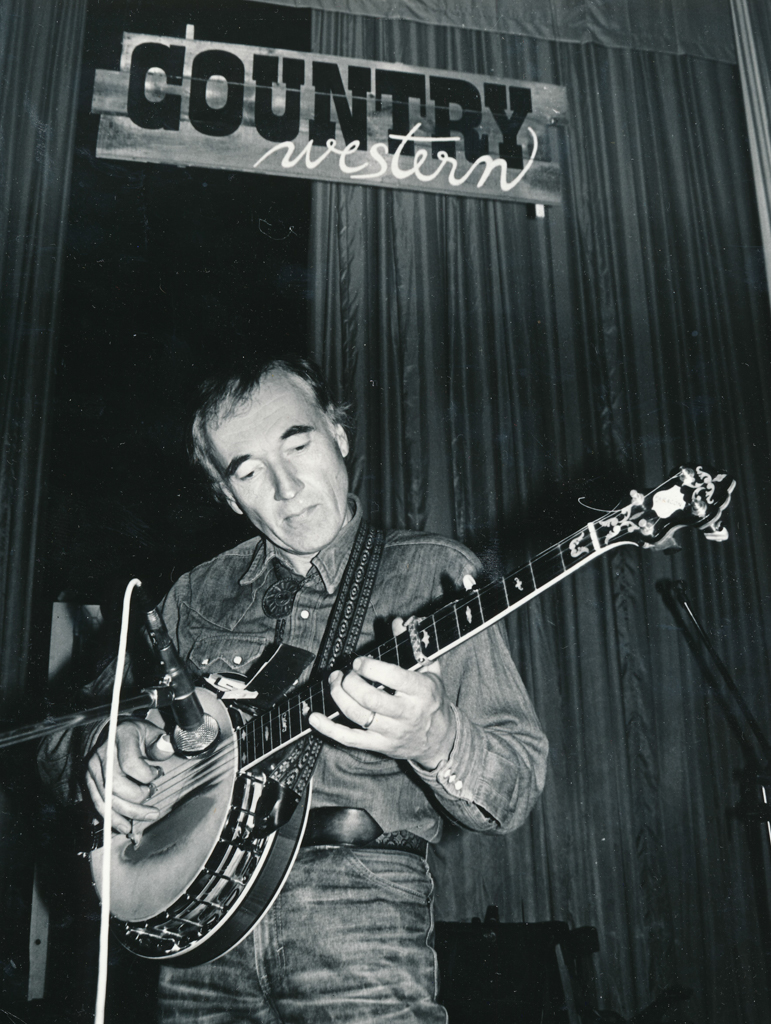
Download image
Marko Čermák was born on 14 February 1940 in Polabec near Poděbrady. His early childhood was not particularly affected by the war. He once witnessed a German plane being shot down, with the pilot landing in a meadow near their village. After the war, his parents came to believe in the ideas of communism. However, in 1948 they returned their membership cards in protest against the Communist coup. Soon after, his father was fired from his job. Since childhood, the witness was captivated by two hobbies, music and drawing, which lasted throughout his life. Soon he also fell in love with the tramp way of life. During his long life he explored practically the entire territory of Bohemia and Slovakia and rafted all the rivers. In the 1960s he became one of the founders of the country and bluegrass bands Greenhorns and White Stars. Later he founded the bluegrass band Paběrky. He won a prestigious award in Nashville, USA, for promoting this musical movement and the five-string banjo. In 1968, he won an audition for the artwork of Jaroslav Foglar’s comics and became the exclusive illustrator of comics and books with Foglar’s themes. His own comic strip, Modrá pětka, remained in the spotlight for decades. In the 1970s, he refused to agree to cooperate with the State Security. In 2022, Marko Čermák was living in Prague, in the El Toro cabin in the forests in Brdy and in a caravan in the Giant Mountains.


